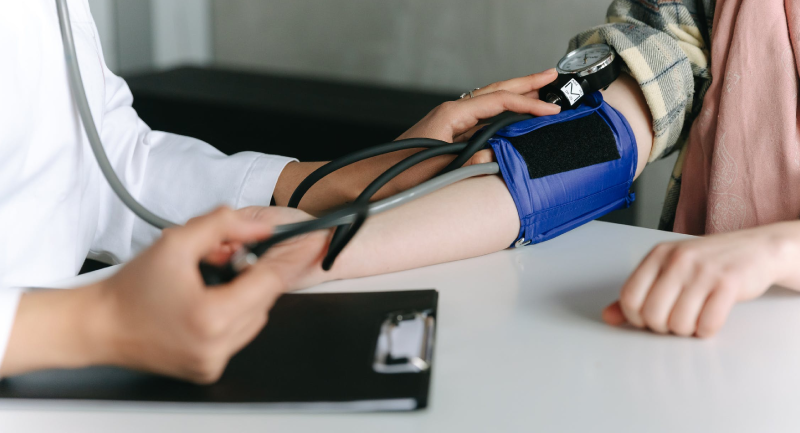High blood pressure can strain the heart and blood vessels. The heart has to work harder and the blood vessels are exposed to higher pressure. In the long run, this can lead to an increased risk of atrial fibrillation and heart failure. Excess pressure on the blood vessels increases the risk of cholesterol deposits and atherosclerosis. This increases the risk of blood clots and bleeding in the brain and of blood clots in the coronary arteries of the heart.
It is therefore important to treat the condition. Sometimes weight loss can be a factor, but for the most part it requires medical treatment to get your blood pressure normalized.
What can be done to reduce the risk of developing atrial fibrillation due to high blood pressure?
Normalizing blood pressure reduces the risk of developing atrial fibrillation, and it may also help to increase the effect of other atrial fibrillation treatments. This applies to both the effect of medical treatment and of ablation treatment / burning / heat treatment.

It may be a good idea to buy a blood pressure monitor if you have been diagnosed with high blood pressure. Blood pressure is often artificially elevated if you get it measured at the doctor or at the hospital.
When measuring blood pressure at home, the measurement becomes most accurate if you measure after 10 minutes of rest. For example, sitting in a chair. And measure three times in a row, where you then take the average of the measurements. It is also a good idea to measure blood pressure both morning and evening. Write down the values and show them to your doctor so that you can agree on whether the blood pressure is satisfactory.
If you have your blood pressure measured by your doctor or consultation nurse, it should be below 140/90. If you measure your blood pressure at home in peace, it should be below 135/85. The reason why I distinguish between blood pressure measured during a consultation, and blood pressure measured at home is that the blood pressure will most often be “artificially” affected when you are at the doctors, normally due to stress. If you have a high risk of developing a cardiovascular disease, already have a cardiovascular disease, diabetes or kidney disease, your blood pressure should be below 130/80.